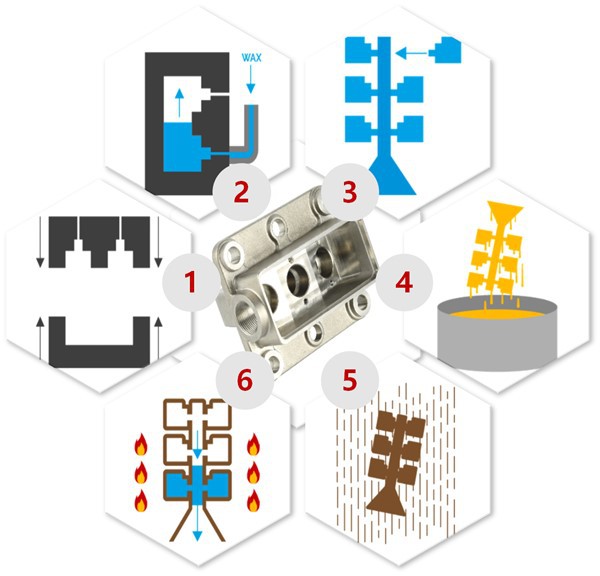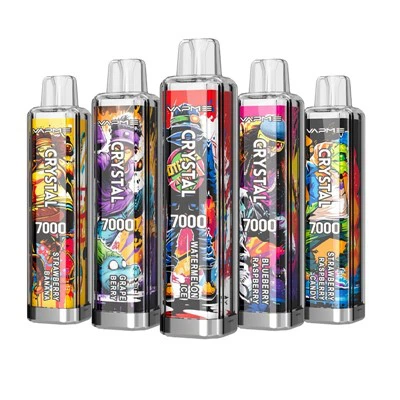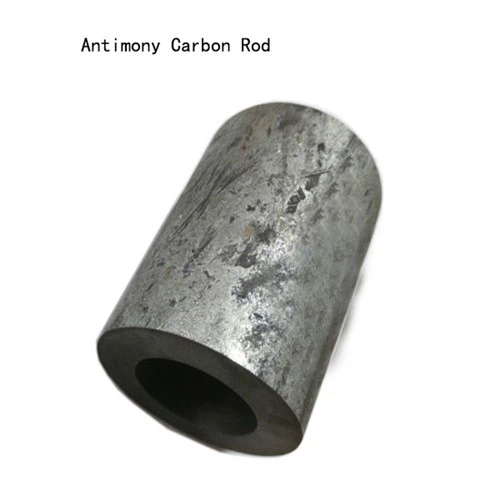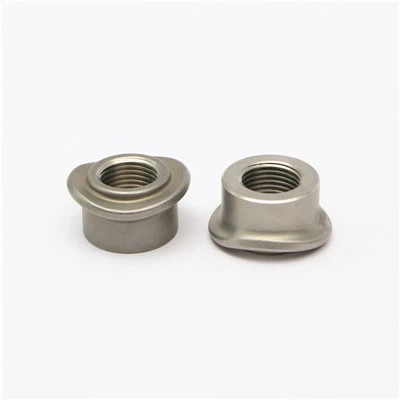Investment Casting Cross Tee
Delivery term:The date of payment from buyers deliver within days- Price:
Negotiable
- minimum:
- Total supply:
- Delivery term:
The date of payment from buyers deliver within days
- seat:
Zhejiang
- Validity to:
Long-term effective
- Last update:
2024-12-29 18:49
- Browse the number:
485
- Ningbo Suijin Machinery Technology Co., Ltd.
-
Contact:
nbsjcast(Mr.)
-
Email:

-
Telephone:

-
Phone:

-
Area:
Zhejiang
-
Address:
Yushantou, Dongqiao Town, Haishu area, Ningbo city, Zhejiang, China.
- Website: http://www.nbsjcast.com/ http://nbsjcast.stress-free-property.com/
 By certification [File Integrity]
By certification [File Integrity]
Product details
What is Investment Casting Steam Y Strainer?

A steam Y-strainer is a type of strainer specifically designed for steam systems. In steam systems, it is essential to remove debris, scale, dirt, and other particles that can potentially damage equipment or affect the efficiency of the system. The Y-strainer gets its name from its shape, which resembles the letter "Y." Here are some key features and functions of a steam Y-strainer:
Straining Function: The primary function of a Y-strainer is to filter out solid particles from the steam flow, preventing them from reaching and potentially damaging downstream equipment such as valves, regulators, or other sensitive components.
Y-Shaped Design: The Y-shaped design allows for efficient straining of the steam flow. The strainer typically has a removable screen or mesh basket that captures particles as the steam flows through it.
Easy Maintenance: Y-strainers are designed for easy maintenance. The removable screen or basket can be taken out, cleaned, and reinstalled, allowing for periodic maintenance to ensure optimal performance.
Pressure Drop: Y-strainers can cause a pressure drop in the steam system, so it's essential to size the strainer appropriately to minimize this effect while still effectively filtering out particles.
Material Compatibility: Steam Y-strainers are typically made of materials that can withstand high temperatures and pressures commonly found in steam systems, such as carbon steel, stainless steel, or other heat-resistant alloys.
Installation: Y-strainers are installed in steam piping systems upstream of sensitive equipment to protect them from debris. Proper installation orientation (usually with the screen pointing downward) is crucial for effective straining.
Overall, a steam Y-strainer is a vital component in steam systems to ensure the longevity and efficient operation of equipment by removing contaminants and protecting downstream components from damage.

01 Part name
Investment casting Steam Y Strainer

02 Application
Check Valve

03 Material
Stainless steel

04 Process
Investment casting
& Machining

05 Casting method
Thermal Gravity Casting

06 Surface finished
As raw cast
(Shot blasting)
Part application

Valve parts castings refer to the metal components that are produced through casting processes for use in various types of valves, such as those found in plumbing, industrial, and mechanical systems.
Valve Clarify
Typical investment casting part we produce include:
1,Check valve
2,Butterfly valve
3,Ball valve
4,Gate valve
5,Control valve
6,Globe valve
7,Plug valve
Connect System
Typical investment casting part we produce include:
1,Raised Face Flange (RFF)
2,Flat Face Flange
3,Ring-Type Joint
4,Flange Joint
5,Pneumatic ball valve carbon steel bracket
6,Ball valve connecting shaft
Valve Body System
Typical investment casting part we produce include:
1,Cast valve body
2,Cast valve disc
3,Cast valve bonnet
4,Cast valve flange
5,Valves Tri Clamp
6,Threaded Fittings to Tri Clamp




Production process introduce
1. Tooling Build
Design and building a metal die from Aluminum
2. Wax Injection
Injecting melted wax under high pressure into the cavity to get a pattern that replicates the finished part geometry
3. Wax Pattern Assembly
The wax patterns are assembled onto runners and into a finished tree which is ready to be dipped.
4. Slurry Coating
The assembly is then dipped into a high-grade ceramic slurry to build a ceramic shell around the wax tree.
5. Ceramic Shell build & Dry the shell
After the slurry coating is done, particles of sand are dropped onto the surface of the wet tree assembly. This helps to thicken and strengthen the layer of coating on the wax assembly surface, repeat 5-6 times.
6. De-waxing
Send the shell into pre-heating oven and then the wax inside the newly built shell is now removed. Dewaxing is done using a steam-dewaxing autoclave or flash fire furnace.

7. Melting & Pouring & cooling
Now the desired molten metal is poured into the pre-heated empty mold cavity, The mold then sits to allow the molten metal to cool and solidify which then becomes the final casting.
8. Shell Removal
The shell material is then removed through processes hammer knockout, vibration, and steel grit blasting
9. Cut-off
The finished parts are then cut free from the gating and runner system.
10. Grinding pouring gate
The ingate which remained after the sawing process, is grinded from the casting.
11. Final inspection
Once the finishing operations are done, the parts are inspected for surface and sub-surface defects.
12. Packaging & Delivery
For oversea shipping, we packaging with standard wooden pallet with size limited 1200*800mm

RFQ handle process
-

Get contact
You can find our contact info for further communication in "Contact US" column.
-

Send drawing
The 2&3D drawing format can be PDF, STEP, DWG, DXF and soon, can be sent via email. Wechat, WhatsApp, link.
-

Get quotation
After clear the demand of customer, we can send you the quotation with PDF format for documentation.

-

Sign NDA
For requirements for confidentiality of drawings, we can signed the NDA before you send drawing.
-

Finish feasibility study
The feasibility study of drawing is most key point to ensure the part can be fully meet drawing specifications, which is include material, dimension, surface treatment, and testing request.
Shipping and lead time

1
Delivery shipping port
The nearest shipping port is Ningbo port, the Port of Ningbo-Zhoushan is the busiest port in the world in terms of cargo tonnage. It handled 1.32 billion tons of cargo in last year.

2
Packaging solution
Normally we use the European standard pallet for oversea market, and also input the anti-rust bag for carbon steel parts for rust protection.

3
Available shipping method
We can support various shipping method, including sea shipping, air shipping, train shipping, and DHL, FedEx, TNT, UPS and so on.

4
Samples Leadtime
For CNC machining parts, the lead-time is about 5-10 days.
For casting and machining parts, it's about 25-30 days.
For casting and machining and surface treatment parts, about 30-40 days.
http://www.nbsjcast.com/
-
 R32 Heating System for House
R32 Heating System for House
price: Negotiable
-
 VAPME Crystal 7000 Puffs
VAPME Crystal 7000 Puffs
price: Negotiable
-
 Oxalic Acid 25kg
Oxalic Acid 25kg
price: Negotiable
-
 Edible Glucose
Edible Glucose
price: Negotiable
-
 Stainless Steel Beer Mugs
Stainless Steel Beer Mugs
price: Negotiable
-
 Antimony Impregnated Carbon Rod Blank for Making Carbon Bush
Antimony Impregnated Carbon Rod Blank for Making Carbon Bush
price: Negotiable







